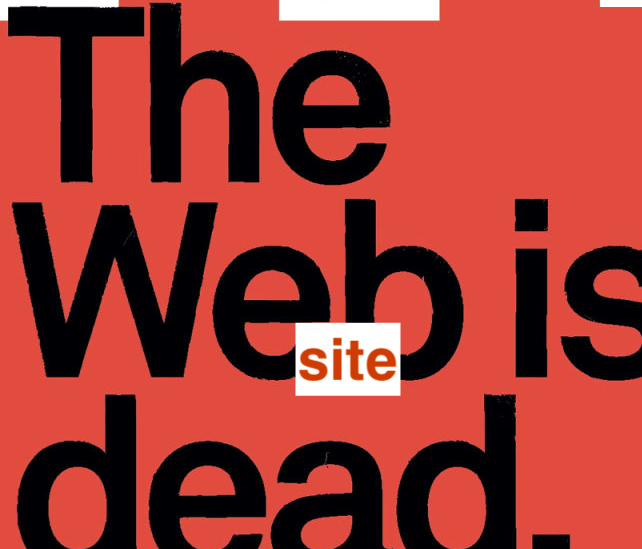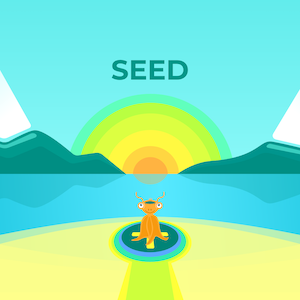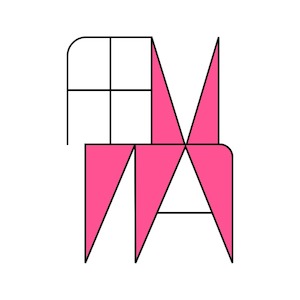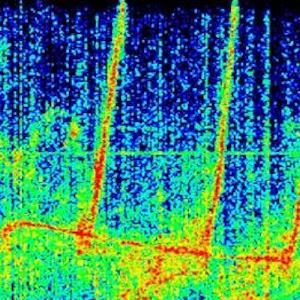Let's broaden our horizons beyond the limits of our screens, the presets and the VSTs . Have you ever noticed that creative people can be sad? Even depressed, frustrated or angry sometimes? Or why certain artists dwelling on darker side of life come up with brilliant music. Same is the case for movies, literature and art. Is there a link between sadness and creativity? Some folks have even correlated the relation between creativity and 'nuero-divergence'. A fancy term to explain that certain brains are 'statistically less common'. Less not in capacity yet merely in occurrence. A bane and a boon in the making. We take a fresh look at creativity in music and it's relation to production. The emerging idea that an "uncommon mind" is the key to creative pursuit and fruition of talent.
Producers, musicians, professional arrangers (those who make beats, design sounds and mix) and singers are often working inside a particular frame of mind with habitual practices for most part of their creative lives. Fame and money makes sure that most of us don't question our abilities once a certain status, or comfort level has been achieved. That's why many electronic music producers get boring really fast. Yet for the persuasive creative mind that is not enough. With enough evidence many of us find the practice of celebrity rather perverse, fake and predictable. For the artists who wish to question, dwell, take risks and eventually cull out an original narrative, creativity is a life long pursuit. Not often in this age of icon worship we hear a talented producer say "I am just not good enough to be ... " or a singer state "My songs are not really up there to ..". But the feeling actually persists amongst many artists, especially in the less than 35 age group. This is the curious case of 'Impostor Syndrome'. Many artists feel difficulty to internalize their achievements and talent. Though it is not classified as a mental disorder or medically treated ailment, psychologically it plays a big role in the life of an artist (regardless of race, economic and social background) To accept that you have done well can be a problem. Given the amount of pressure generated by the internet, peers, society and given inequalities, many artist find hope in remaining demure and quiet, while the center-stage is decked with mediocrity and hype. Women are more likely to feel this syndrome more than men suggests one study. In his book Master And His Emissary by Ian McGilchrist describes that the right hemisphere of the brain is responsible for sparking creativity as well triggers feelings of sadness, fear and anger. Yet it's not as simple as connecting dots, especially in an age where the artists (much like everyone else) is prone to increased digital exposure, competition, anxiety and activity. The romantic notion of the "tormented artist" being super creative is as bogus as music therapists beating gongs and rubbing Tibetan bowls to heal folks off their misery.
Lets consider creativity to be personal as well as vulnerable. As artists we may question (sometimes excessively) that 'Is there any value to what I create?'. As we chase models of success in our careers, the process makes us vulnerable. Yet to be vulnerable in an honest way helps us confront ourselves: creates individuality and helps understand our limits as an artist. As artists we copy methods of success, ape ideas of instant fame, control and change 'our art' to match 'industry standards' and in process forfeit (or sell) our personal instincts and creative urges. This process on the downside makes us believe many not-so-nice folks, who exploit our weakness for a penny or thousands of dollars or for plain free labor. Personal creative desires that get cast aside by vulnerability can be seen manifesting in many ways today. Institutional or corporate or even indie. An artist who is constantly hankering for ways to increase his/her followers or a producer who is spending more time on instagram posting cats laying on synthesizers or the rappers who are battling other rappers on snapchat into a 'death-match' of verbal diarrhea : Hours and days playing upon our vulnerability. The examples of vulnerability exploitation can be seen inside the business of software, propaganda agencies, festivals, bookers, blogs, sampled sound vendors and tech-publications all aiming for profit maximization, using hundreds and thousands if not millions of musicians and artists every day for their end-goal. Enrichment programs and content which is sold to us has never been tried nor tested on anyone before. There is zero proof that all this 'exclusive' expensive content is of any value to build creativity or artistic improvement.
Creativity is not Production. The two words are often interlinked by academies, institutions, software companies and many bogus experts in order to create a shroud of 'discourse'. Production and technical knowledge (boils down to speed and accuracy) are very effective options when we want increase our chances in succeeding inside a factory. Alas not in music nor any creative pursuit. We must have X'new' plug in or Y'new' sample-library of Z'new' software every year. We must check out the new (yet very needless) gadgets that hit the market like a treadmill every year. We must chat about the 'latest new whiz controller' (pieces of plastic and circuits assembled by nameless wage slaves in China, Vietnam, Romania and Indonesia). A lot of the new software(s) we use everyday to produce and mix music is not breaking new grounds and is actually rehashed ideas with better looking visuals and buttons. Hundreds of 'faith based academies' offer thousands of courses about Ableton, Logic, Pro-Tools, Reason, On How to Mix/Master/Make techno, house, glitch, trap, dubstep, rap etc etc to emerging artists (at exorbitant prices), in process converting fresh minds into industrially certified button pushers. We will not name these bogus alters of learning simply because there are way too many, yet artists should be aware of the hoodwink claims and pitfalls of wasting their time and money. Every pioneering software eventually falls into the routine of stereotype production, almost like an organized religion. Creativity has no particular value yet Production does tend to put a value on everything. "Technology has a clear bias simply because it was made to achieve a very clear goal" says Tristan Harris, an ethicist based in San Francisco. While one is clambering to cope with new technologies and production tools, creativity much like a bird, sits out on a tree singing, waiting, for a wave of fresh air. Creativity has clear no end-goal given it's elusive nature and function. Many times, these 'hoodwink experts' are merely exploiting your 'existential angst'.
Art is never made in a vacuum and it always has some socio-cultural or political context. Techno rose up from the debris of an industrial wasteland. Jazz and Rap was borne in politically divided cities by struggling minorities in post-colonial america. Reggaeton is a product of south american slums and very violent social conditions within. House and Disco have strong links with cocaine and club culture which struck 'gold' in Italy, Spain and America. Without that context music is routine industrial culture : millions of tunes with top-notch production riding on technology based repetition. Like new models of cars, perfumes and fashion, society must have new hit-songs every summer (not new kinds of music nor new kind of songs). A musician can be seen as industrial labor when the number of songs or hits to be produced is directly proportional to the rewards to be earned. Via production we try to achieve creativity and it often leads to frustration or even boredom. Very often we find ourselves repeating the same routines while producing music. It's automatic yet it's not really creative or pleasurable work. What's worse is that many artists peddle their state of mediocrity as their creativity (Many EDM stars and pop-divas are contemporary examples of this phenomena) Are we listening to the sound inside our head? So what about drugs and creativity? Seldom do music writers, tastemakers, elite institutions, radio and festivals speak about the effect of drugs on creativity and music production. The reason is obvious. More than half the 'industry' is consuming marijuana (privately) at least if not higher alternatives. The lifestyles of many famous DJs, singers and rockers is replete with drugs and booze to attain greater creative grounds. Who Wins? We all know that. Social, cultural and scientific research shows that creativity has a close link with drugs: and especially THC, amphetamine and hallucinogenic drugs. Yet that debate (use and abuse) is very wide open to bias as well as skepticism, depending where you are and what the politics of your society dictates. One can choose to completely reject the field of drugs in favor of meditation, yoga or even physical exercise to harness creativity. Some artists find creativity in nature or amongst animals. Some inside zero visibility rooms, some find inspiration in science and data. Some folks find creativity around friends and peers and a few even hanging around abandoned buildings and rocks. "If your genuinely looking for creativity, chances are it is looking for you as well" Bennet Riemer in his book Philosophy of Music Education in 1970.
In music : rejecting norms, breaking rules, re-inventing and playing with chance is as important as formal education and practice. Society in general tells us otherwise. Software does not boost creativity. There is no evidence to show wether a song will sound better if we use software x or y, if we use instruments A or B or record our tunes in a fancy multi-tracking suite versus a run-down garage studio. There is no reason not to put reverb on a voice. An echo need not be always in perfect time. The same note need not fall on the same place. Quantization can lead to an overkill of space. Many many tracks don't add upto a 'bigger sound' and a 'fat sound' is no guarantee of a hit song. The uncommon mind contains the seeds of creativity and the world is the environment for that very bio-social energy to grow and take root. Creativity has no morals, not at least social or political. Creativity plays with our senses, our bias, ability to change and respond to stimuli. Creativity has no given relation with virtual objects, boxes and lines inside a software. Sugar levels effect creativity way more than a virtual knob on the screen or a piece of plastic called 'Push' or 'Venom'. The uncommon mind is a very good place for creativity. A trained mind can perform better yet for what purpose? Production is a skill that is optional and should not be negotiated with creativity. Technology should serve creativity and not the other way around. Don't let your creativity be caged by fixed ideas, routes, softwares, brands and heroes.
Producers, musicians, professional arrangers (those who make beats, design sounds and mix) and singers are often working inside a particular frame of mind with habitual practices for most part of their creative lives. Fame and money makes sure that most of us don't question our abilities once a certain status, or comfort level has been achieved. That's why many electronic music producers get boring really fast. Yet for the persuasive creative mind that is not enough. With enough evidence many of us find the practice of celebrity rather perverse, fake and predictable. For the artists who wish to question, dwell, take risks and eventually cull out an original narrative, creativity is a life long pursuit. Not often in this age of icon worship we hear a talented producer say "I am just not good enough to be ... " or a singer state "My songs are not really up there to ..". But the feeling actually persists amongst many artists, especially in the less than 35 age group. This is the curious case of 'Impostor Syndrome'. Many artists feel difficulty to internalize their achievements and talent. Though it is not classified as a mental disorder or medically treated ailment, psychologically it plays a big role in the life of an artist (regardless of race, economic and social background) To accept that you have done well can be a problem. Given the amount of pressure generated by the internet, peers, society and given inequalities, many artist find hope in remaining demure and quiet, while the center-stage is decked with mediocrity and hype. Women are more likely to feel this syndrome more than men suggests one study. In his book Master And His Emissary by Ian McGilchrist describes that the right hemisphere of the brain is responsible for sparking creativity as well triggers feelings of sadness, fear and anger. Yet it's not as simple as connecting dots, especially in an age where the artists (much like everyone else) is prone to increased digital exposure, competition, anxiety and activity. The romantic notion of the "tormented artist" being super creative is as bogus as music therapists beating gongs and rubbing Tibetan bowls to heal folks off their misery.
Lets consider creativity to be personal as well as vulnerable. As artists we may question (sometimes excessively) that 'Is there any value to what I create?'. As we chase models of success in our careers, the process makes us vulnerable. Yet to be vulnerable in an honest way helps us confront ourselves: creates individuality and helps understand our limits as an artist. As artists we copy methods of success, ape ideas of instant fame, control and change 'our art' to match 'industry standards' and in process forfeit (or sell) our personal instincts and creative urges. This process on the downside makes us believe many not-so-nice folks, who exploit our weakness for a penny or thousands of dollars or for plain free labor. Personal creative desires that get cast aside by vulnerability can be seen manifesting in many ways today. Institutional or corporate or even indie. An artist who is constantly hankering for ways to increase his/her followers or a producer who is spending more time on instagram posting cats laying on synthesizers or the rappers who are battling other rappers on snapchat into a 'death-match' of verbal diarrhea : Hours and days playing upon our vulnerability. The examples of vulnerability exploitation can be seen inside the business of software, propaganda agencies, festivals, bookers, blogs, sampled sound vendors and tech-publications all aiming for profit maximization, using hundreds and thousands if not millions of musicians and artists every day for their end-goal. Enrichment programs and content which is sold to us has never been tried nor tested on anyone before. There is zero proof that all this 'exclusive' expensive content is of any value to build creativity or artistic improvement.
Creativity is not Production. The two words are often interlinked by academies, institutions, software companies and many bogus experts in order to create a shroud of 'discourse'. Production and technical knowledge (boils down to speed and accuracy) are very effective options when we want increase our chances in succeeding inside a factory. Alas not in music nor any creative pursuit. We must have X'new' plug in or Y'new' sample-library of Z'new' software every year. We must check out the new (yet very needless) gadgets that hit the market like a treadmill every year. We must chat about the 'latest new whiz controller' (pieces of plastic and circuits assembled by nameless wage slaves in China, Vietnam, Romania and Indonesia). A lot of the new software(s) we use everyday to produce and mix music is not breaking new grounds and is actually rehashed ideas with better looking visuals and buttons. Hundreds of 'faith based academies' offer thousands of courses about Ableton, Logic, Pro-Tools, Reason, On How to Mix/Master/Make techno, house, glitch, trap, dubstep, rap etc etc to emerging artists (at exorbitant prices), in process converting fresh minds into industrially certified button pushers. We will not name these bogus alters of learning simply because there are way too many, yet artists should be aware of the hoodwink claims and pitfalls of wasting their time and money. Every pioneering software eventually falls into the routine of stereotype production, almost like an organized religion. Creativity has no particular value yet Production does tend to put a value on everything. "Technology has a clear bias simply because it was made to achieve a very clear goal" says Tristan Harris, an ethicist based in San Francisco. While one is clambering to cope with new technologies and production tools, creativity much like a bird, sits out on a tree singing, waiting, for a wave of fresh air. Creativity has clear no end-goal given it's elusive nature and function. Many times, these 'hoodwink experts' are merely exploiting your 'existential angst'.
Art is never made in a vacuum and it always has some socio-cultural or political context. Techno rose up from the debris of an industrial wasteland. Jazz and Rap was borne in politically divided cities by struggling minorities in post-colonial america. Reggaeton is a product of south american slums and very violent social conditions within. House and Disco have strong links with cocaine and club culture which struck 'gold' in Italy, Spain and America. Without that context music is routine industrial culture : millions of tunes with top-notch production riding on technology based repetition. Like new models of cars, perfumes and fashion, society must have new hit-songs every summer (not new kinds of music nor new kind of songs). A musician can be seen as industrial labor when the number of songs or hits to be produced is directly proportional to the rewards to be earned. Via production we try to achieve creativity and it often leads to frustration or even boredom. Very often we find ourselves repeating the same routines while producing music. It's automatic yet it's not really creative or pleasurable work. What's worse is that many artists peddle their state of mediocrity as their creativity (Many EDM stars and pop-divas are contemporary examples of this phenomena) Are we listening to the sound inside our head? So what about drugs and creativity? Seldom do music writers, tastemakers, elite institutions, radio and festivals speak about the effect of drugs on creativity and music production. The reason is obvious. More than half the 'industry' is consuming marijuana (privately) at least if not higher alternatives. The lifestyles of many famous DJs, singers and rockers is replete with drugs and booze to attain greater creative grounds. Who Wins? We all know that. Social, cultural and scientific research shows that creativity has a close link with drugs: and especially THC, amphetamine and hallucinogenic drugs. Yet that debate (use and abuse) is very wide open to bias as well as skepticism, depending where you are and what the politics of your society dictates. One can choose to completely reject the field of drugs in favor of meditation, yoga or even physical exercise to harness creativity. Some artists find creativity in nature or amongst animals. Some inside zero visibility rooms, some find inspiration in science and data. Some folks find creativity around friends and peers and a few even hanging around abandoned buildings and rocks. "If your genuinely looking for creativity, chances are it is looking for you as well" Bennet Riemer in his book Philosophy of Music Education in 1970.
In music : rejecting norms, breaking rules, re-inventing and playing with chance is as important as formal education and practice. Society in general tells us otherwise. Software does not boost creativity. There is no evidence to show wether a song will sound better if we use software x or y, if we use instruments A or B or record our tunes in a fancy multi-tracking suite versus a run-down garage studio. There is no reason not to put reverb on a voice. An echo need not be always in perfect time. The same note need not fall on the same place. Quantization can lead to an overkill of space. Many many tracks don't add upto a 'bigger sound' and a 'fat sound' is no guarantee of a hit song. The uncommon mind contains the seeds of creativity and the world is the environment for that very bio-social energy to grow and take root. Creativity has no morals, not at least social or political. Creativity plays with our senses, our bias, ability to change and respond to stimuli. Creativity has no given relation with virtual objects, boxes and lines inside a software. Sugar levels effect creativity way more than a virtual knob on the screen or a piece of plastic called 'Push' or 'Venom'. The uncommon mind is a very good place for creativity. A trained mind can perform better yet for what purpose? Production is a skill that is optional and should not be negotiated with creativity. Technology should serve creativity and not the other way around. Don't let your creativity be caged by fixed ideas, routes, softwares, brands and heroes.































0 -